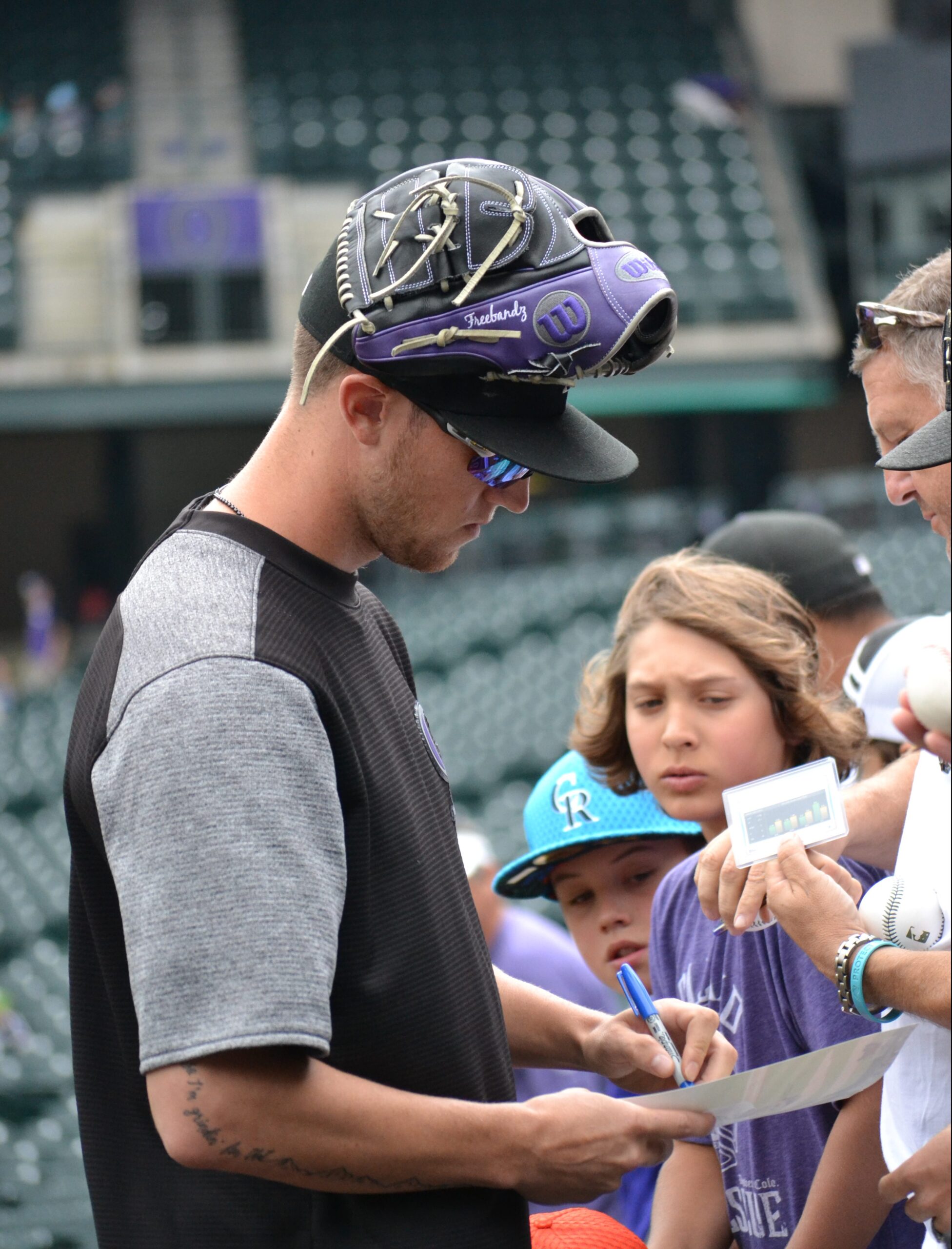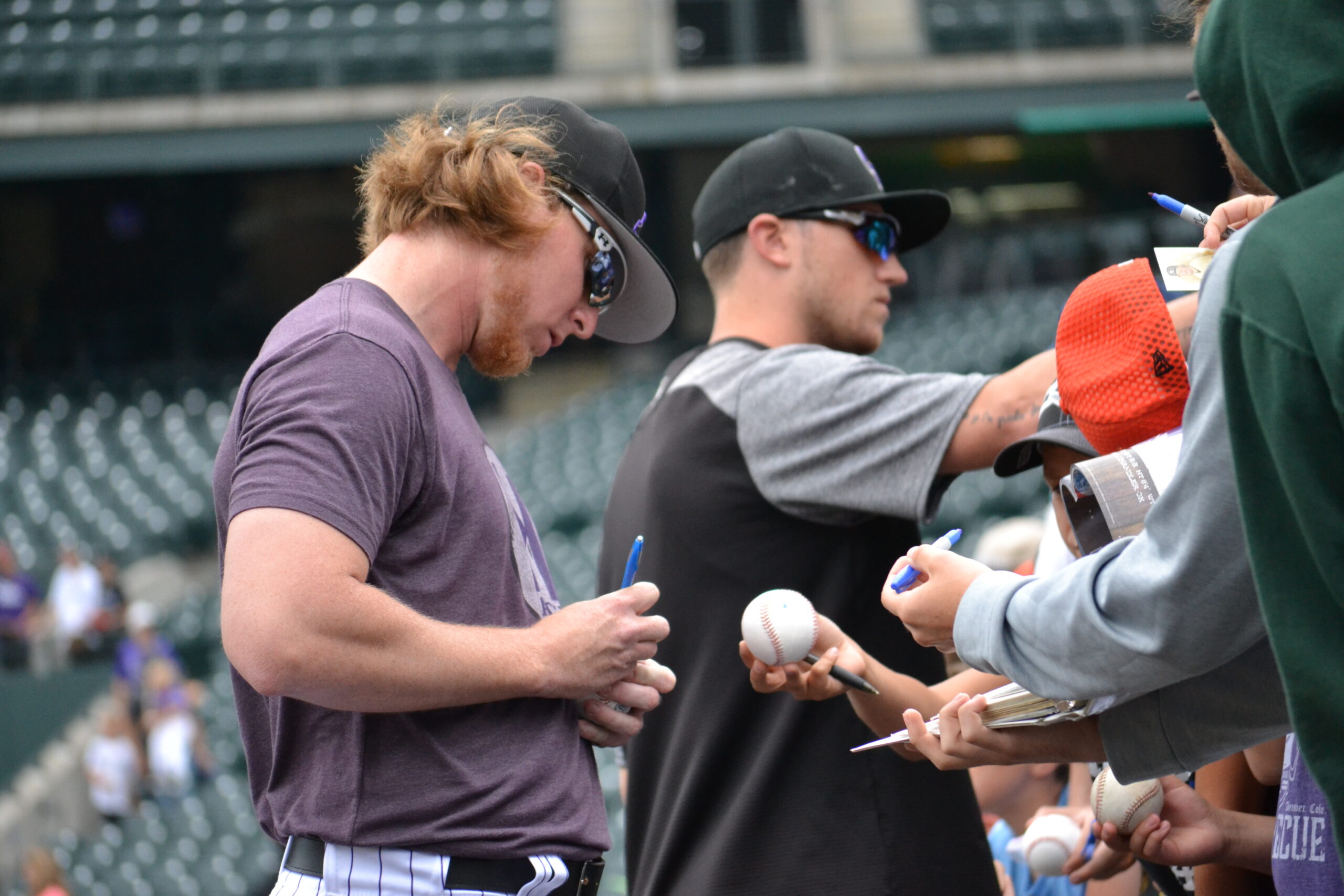© 2026 ALLCITY Network Inc.
All rights reserved.

DENVER – On April 5, 1993, the Colorado Rockies played their first regular season game led by David Nied, taking a 3-0 loss at the hands of the New York Mets at Shea Stadium. Four days later, Eric Young kicked off a brand new era of baseball in Denver with a leadoff solo home run in an eventual win over the Montreal Expos. Thirty five days after that, Don and Susan Freeland’s son, Kyle, was born.
Also on that day, the Rockies beat the Cubs 14-13.
In the 24 years between then and now, baseball in Denver — baseball at altitude — has developed its own set of legends, myths, fables and cautionary tales. The most repeated of these, the scariest horror story of them all, is how it is nearly impossible to pitch way up at 5280 feet. But a kid with mountains in his blood is proving how quaint that notion became.
Over 61.2 innings pitched at Coors Field, Freeland has posted a 3.21 ERA. On the road, it’s 4.22. History tells us that is backward. Freeland tells us he’s home. Of course, the word “home” in this case, means a little more to the Denver native than it often does when used in a usual pro sports context. When Freeland comes back off a road trip, he isn’t just coming back to a friendlier ballpark, he’s coming back to his friends and family.
“I definitely feed off the energy of the crowd,” he told BSN Denver. “When they get excited, it gets me excited, it gets me going. When you’re at home, especially here, being from here, it’s that extra boost.”
The extra boost appears to be working.

But the success that Freeland is experiencing in this environment is not a function of accident, it is by design. While he had a bit of a head start, growing up in the thin air of Colorado, he says he and the other young pitchers who came up through the system have been training for this for years.
“Coming up through the minor leagues, it was constantly told to us that we were gonna have to pitch at Coors Field one day, we’re gonna have to deal with that attitude,” he said. “It’s been installed in our head that no matter where you are, you still have to pitch your game. Sea level or in the mountains, you need to take into account what you can control and get it done.”
All those years the Rockies front office was telling us they valued character and mental toughness above almost all else when evaluating young pitchers, this is what they meant.
This manifests in the fact that Freeland can’t deny relishing in the opportunity to pitch in, and potentially tame, a place long thought untamable.
“I enjoy it,” the rookie said. “Throughout the season I’ve only had a couple of rough starts here and I think I ended up getting a quality start out of one of them. I enjoy pitching here, my numbers are good here.”
“I’ve been roughed up a bit out on the road a couple of times,” he says with a slight smile. Baseball is never easy.
On July 9, 1993, the Rockies won 5-4 over the St. Louis Cardinals to improve to a dreadful 32-53 record. Dante Bichette and Andres Galarraga each drove in a run, Marcus Moore picked up the win, Lee Smith the loss, and current Colorado pitching coach Darren Holmes tallied his eighth save of the season. 24 years later to the day, Freeland nearly no-hit the Chicago White Sox, where else but at Coors Field? And he did so with Holmes in his corner.
That game was a culmination, not necessarily the apex, of years of hard work both mental and physical pouring out of the left arm of the hometown hero.
“There was a lot of conviction with every pitch he threw,” said manager Bud Black after the historic effort. “Kyle pitches with a lot of emotion. You don’t see it sometimes but this guy’s got a fire within him.”
While some thought sinkers and others thought strikeouts, the left-hander from Thomas Jefferson is doing a little bit of both to solve the National League’s launching pad. Coors Field opened its gates for the first time five days before Freeland’s second birthday. For all intents and purposes, it has always existed to him. It’s not some exotic place. For Kyle Freeland, few things are more familiar than firing the rock a mile above the sea.
Is it even a surprise that Colorado’s very own would be the one to solve a problem as old as baseball on Blake itself?
Maybe it doesn’t make sense that a left-handed rookie from the University of Evansville by way of Denver, Colorado is doing more than anyone from the past has to quell the fears inspired by baseball in the thin air. Maybe it doesn’t make any sense that a guy whose key attribute is inducing weak contact, or that a kid in his very first taste of MLB, could change such a long standing paradigm at baseball’s pitchers’ nightmare.
Or maybe it’s the only thing that makes sense.

Comments
Share your thoughts
Join the conversation




